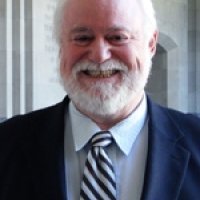A Crisis of Governance in South Sudan
“The seeds were sown for good government… but there is still a long way to go” – Lual A. Deng
Overview
The discussion centered on Lual A. Deng’s book “The Power of Creative Reasoning: The Ideas and Vision of John Garang,” which explores the life of the late leader of the Sudan People’s Liberation Movement (SPLM) throughout the Civil War. The speakers discussed the causes of state fragility, the definition of a “failed” state, strategies for improving governance and the meaning of national identity.
Mobilizing the Sudan People’s Liberation Movement (SPLM)
Deng opened the discussion by responding to a twofold question made by Alan Goulty, co-Chair of the Sudan Working Group, in review of his book, when he asked, “why did John Garang not succeed in mobilizing SPLM to support and continue his work, and why did governments in South Sudan not follow his blueprint for the development of the country?” According to Deng, “SPLM cadres did actually follow Dr. Garang’s work with respect to the Sudanese crisis of state and identity.” In fact, the Sudanese leader had clearly conceptualized two possible solutions to the North and South divide, the most desirable one being the creation of a federated Sudan, whereby each sub-region would be politically and militarily autonomous while being part of a broader federation. “In the event that the interests of the South were not adequately served by the government of national unity,” Garang proposed a second solution: the establishment of two distinct states. Deng therefore concluded that SPLM leaders had in fact sought to solve the country’s crisis in accordance with Garang’s vision. Conversely, they were not observant of his premonitions with regard to the country’s development. Garang had indeed given “the current leadership of South Sudan (…) the roadmap for the establishment of a new Sudan where ‘the exercise of political, economic and administrative authority in the management of the country’s affairs at all levels [was] people-based,’” but the SPLM chose not to implement it.
The Key Drivers
Deng pointed to five factors that drive South Sudan’s crisis of governance, all of which are markedly pronounced. In particular, he said the leaders of the SPLM and the National Congress Party (NCP) were responsible for the expansion of two main factors: weak institutions and poor economic management. Indeed, the General Secretariat of the SPLM was charged with incompetence with respect to the management of the party’s funds. Despite the lack of “credible indications of any financial mismanagement within the SPLM,” Deng expressed his concerns to President Salva Kiir, leading to an open debate in the National Legislative Assembly, which unfortunately did not bring about a definitive resolution. Furthermore, the SPLM failed to build robust institutions prior to the independence referendum of 2011, which would have engendered an easier and more comprehensive transition to the two-state model. Deng pointed out that, in fact, weak institutions are in part a result of weak leadership. Both the SPLM and the NCP in Sudan suffer from a lack of legitimacy and a deterioration of mutual trust, which has led to a corresponding failure to establish a common military doctrine. This eventually caused the precarious separation of the South and by extension the current crisis of governance.
Moving Forward
Deng subsequently put forward some suggestions on how to address the driving factors of the governance crisis. Good leadership was the first solution proposed to strengthen institutions, along with human resource development, participatory governance and the introduction of civil authority. The necessity of visionary leadership was particularly stressed by Deng, who highlighted some of the qualities that made Garang a good leader. Most notably, courage helped him gather the support of the population around his ideas, even when they were not popular in the first place. Furthermore, the problem of pervasive corruption can be tackled by enforcing the rule of law and changing the culture of impunity. Garang was conscious of these issues and promoted the restoration of positive societal norms and values. Poor economic management should be tackled by making use of coherent expert analysis indicating the best policy options available to policy-makers and the efficient use of the scarce human and capital resources in the country.
The Evolution of Governance
Brian D'Silva noted that the focus should be on the “evolution of governance” since crises in governance are fleeting. Progress can be made by “reflecting on what has happened and figuring out what can be done given the constraints.” This will require serious academic research, exploring the problems faced by governments before and after the independence of South Sudan. A number of changes took place from 1997 to 2005 in economic and political governance. U.S. policy towards the region began to allow developmental assistance to opposition areas in South Sudan. USAID evaluated possible economic routes to take to lead to a long-term transformation, in a similar way to Garang. In 2000 the SPLM set up a natural resources technology committee, which among other things oversaw “landmark work from forestry to wildlife.”
The Death of John Garang
D’Silva explained how the loss of Garang in 2005 presented a major challenge for the SPLM. The movement needed to preside over the South, join the government of national unity and hold a census, while facing fierce criticism from all sides. Nevertheless, D’Silva recognized the efforts and the successes achieved by the leaders of the movement, who managed to unite the South and lead it to independence. The SPLM established a new government in Juba, which was forced to function under a hybrid system based on the pre-existing government. Still, important progress was made when the referendum was held, and South Sudan ultimately voted for independence. Nevertheless, as D’Silva pointed out, that Juba’s institutions remain precarious and the transition from a hybrid government to a comprehensive one is as yet unfinished.
What Happens Now?
South Sudan must “overcome the challenges of infancy and foster its growth into adulthood through the cooperation of the people of South Sudan, the government of South Sudan and the international community.” Kate Almquist Knopf commented that understanding the history and context of these challenges is “incredibly important.” As a matter of fact, South Sudan “is not another fragile state; it is not another failed state that once worked and now doesn’t work. It has [simply never] been a state.” We should hence take a close look at the context in which it was established, and the future challenges of state formation that it is facing. Foreign assistance should “continue to provide alternatives,” but it is crucial that internal reforms reign supreme. There are a number of options for building state capacity and effectiveness by transferring knowledge and skills. South Sudan is still facing a “challenge of legitimacy” and needs to find a national identity, as well as social cohesion and trust. The South Sudanese people should first define what their state should be, in order to move forward.
Speakers

Former British Ambassador to Sudan and Tunisia

Hosted By

Africa Program
The Africa Program works to address the most critical issues facing Africa and US-Africa relations, build mutually beneficial US-Africa relations, and enhance knowledge and understanding about Africa in the United States. The Program achieves its mission through in-depth research and analyses, public discussion, working groups, and briefings that bring together policymakers, practitioners, and subject matter experts to analyze and offer practical options for tackling key challenges in Africa and in US-Africa relations. Read more
